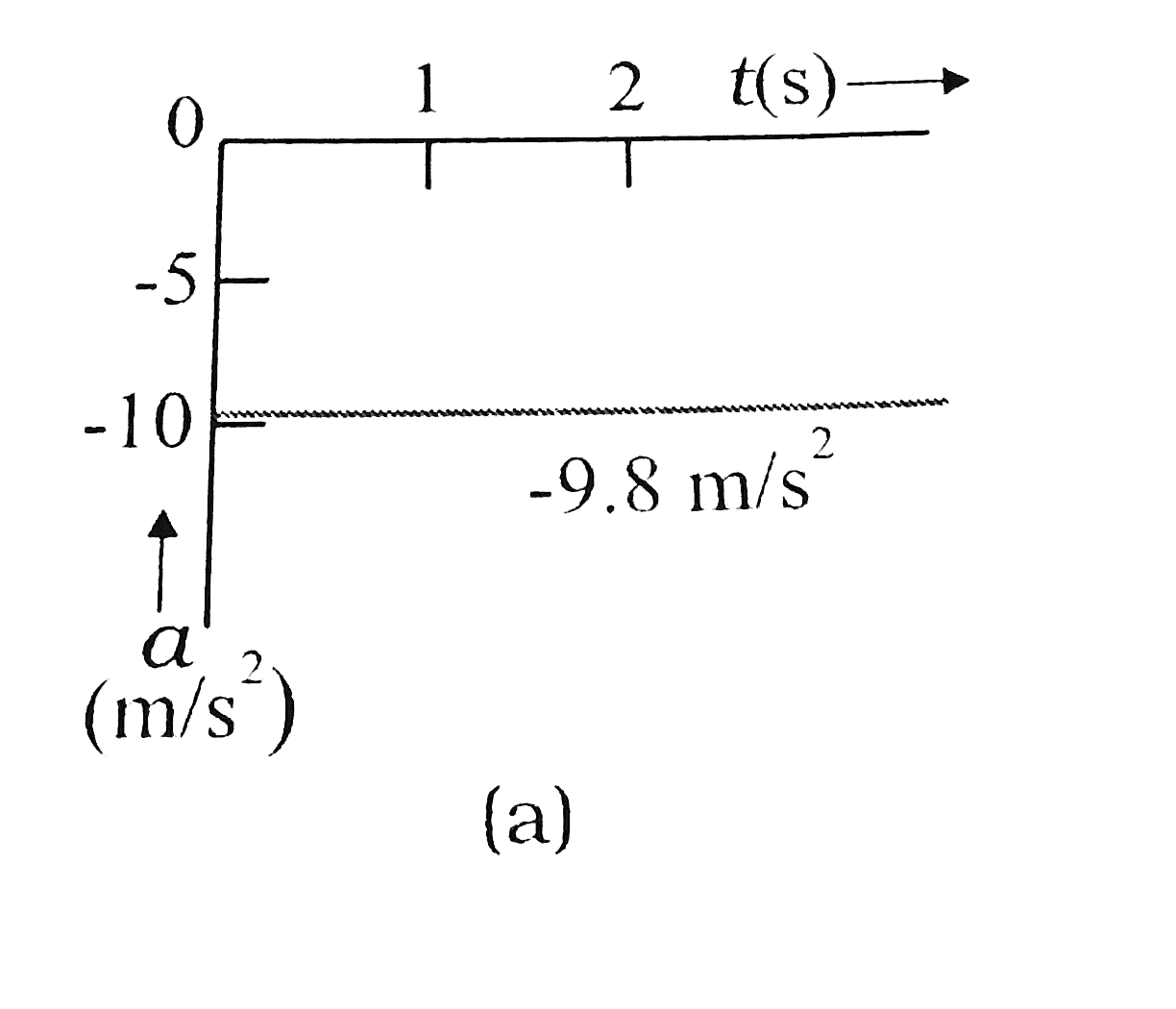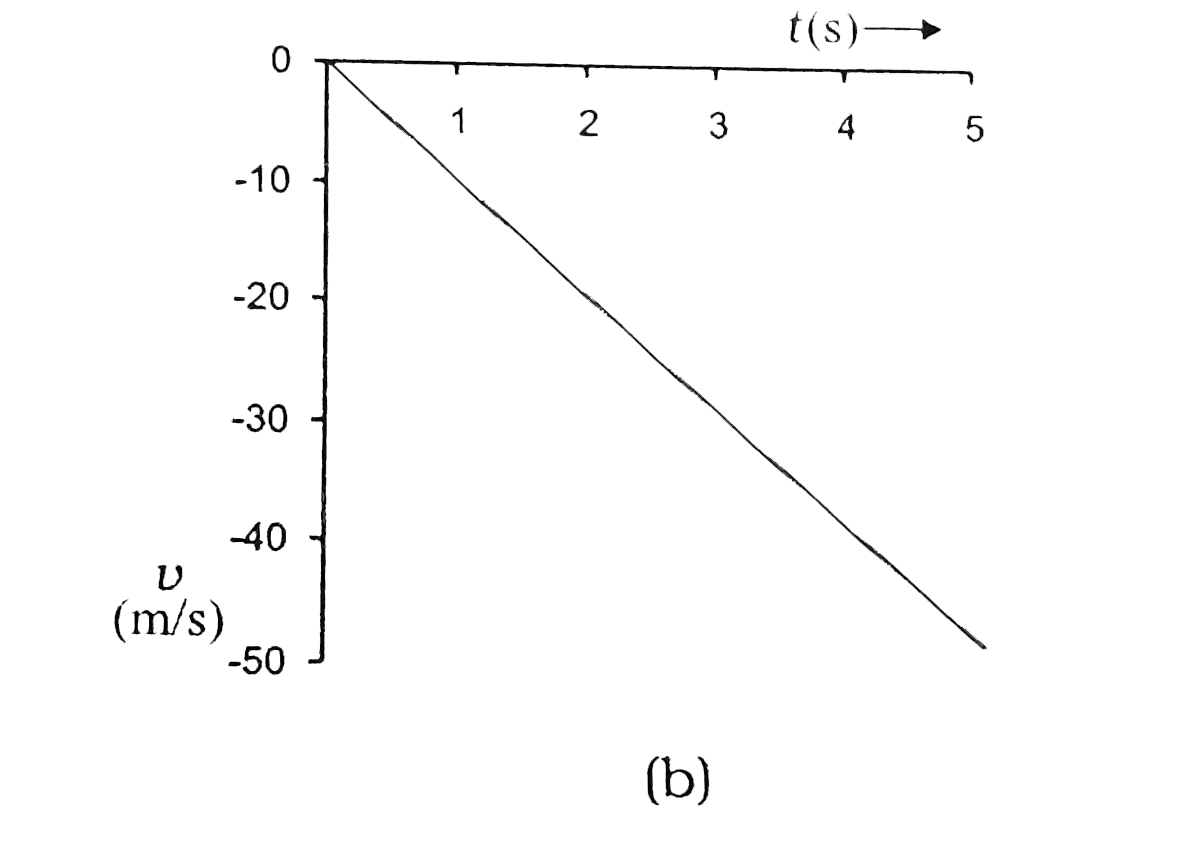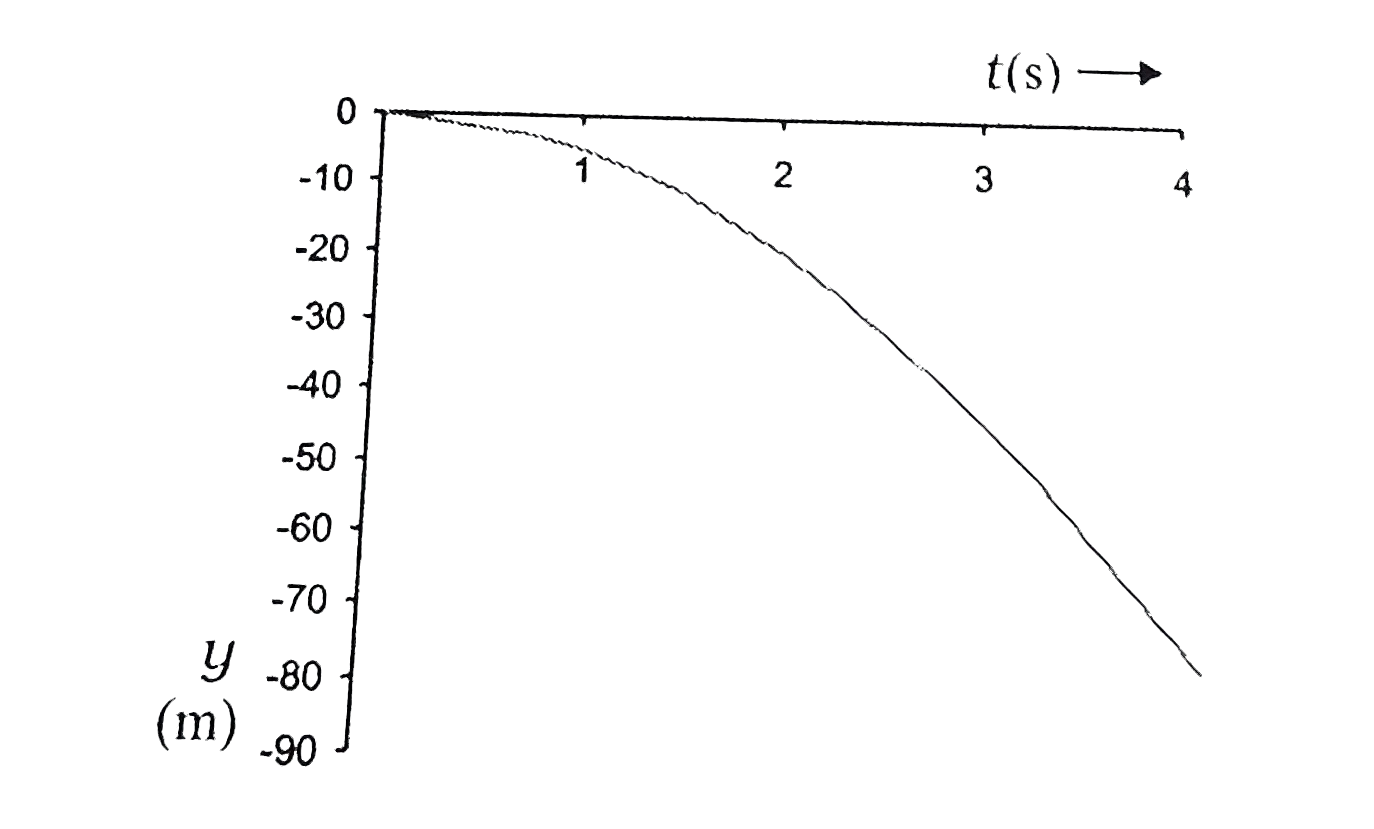Free-fall : Discuss the motion of an object under free fall. Neglect air resistance.
Video Solution
Text Solution
An object released near the surface of the earth is accelerated downward under the influence of the force of gravity. The magnitude of acceleration due to gravity is represented by g. If air resistance is neglected, the object is said to be in free fall. If the height through which the object falls is small compared to the earth's radius, g can be taken to be constant, equal to . Free fall is thus a case of motion with uniform acceleration.
We assume that the motion is in y-direction. more correctly in -y-direction because we choose upward direction as positive. Since the acceleration due to gravity is always downward, it is in the negative direction and we have
the object is released from rest at . Therefore, and the equations of motion becomes:
These equations give the velocity and the distance travelled as a function of time and also the variation of velocity with distance. The variation of acceleration, velocity, and distance, with time have been plotted in Fig. 3.14 (a). (b) and (c)
(a) 
(b) 
(c) 
|
Topper's Solved these Questions
Similar Questions
Discuss the motion of an object under free fall and draw (a) acceleration-time , (b) velocity-time and (c ) position-time graph for this motion .
View SolutionDefine free fall.
View SolutionDefine free fall.
View SolutionWhat are free fall
View SolutionDefine free fall .
View SolutionWhat is free fall ?
View SolutionWhat is free fall ?
View SolutionDescuss the motion of an object under free fall and draw (a) acceleration-time , (b) velocity-time and (c ) position-time graph for this motion .
View SolutionRepresent the variation of distance with time for an object under free fall.
View SolutionWhat will be the mass of an object nuder free fall, if at earth's surface it weighs 100 N ? [Take g=10m/s2]
View Solution
